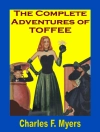H. G. Wells’s trilogy, comprising *The Time Machine*, *The Invisible Man*, and *The War of the Worlds*, offers a rich tapestry of speculative fiction that interrogates the human condition through the lens of science and morality. Each narrative is a masterclass in literary style, blending vivid storytelling with sharp social commentary, showcasing Wells’s deft command of the genre. *The Time Machine* explores the consequences of social stratification in a future world, while *The Invisible Man* delves into themes of isolation and the perils of unchecked ambition. *The War of the Worlds* serves as a poignant reflection on imperialism and human survival amidst extraterrestrial chaos, employing an exciting yet disquieting prose that remains resonant in contemporary discussions of technology and society. H. G. Wells, often revered as the father of science fiction, was influenced by the tumultuous socio-political landscape of the late 19th and early 20th centuries. An education in biology and economics underpinned his writing, infusing his works with a critical examination of science, progress, and their implications for humanity. His visionary ideas were not only prescient but also aimed at provoking thought on ethical dimensions of scientific advancements during his era. This collection is essential for readers who seek to understand the roots of modern science fiction. Wells’s ability to weave complex themes within thrilling narratives invites readers to ponder deeper questions about society, humanity, and progress. Engaging and thought-provoking, this anthology is a must-read for anyone interested in the intersections of literature, science, and philosophy.
लेखक के बारे में
Herbert George Wells, commonly known as H. G. Wells (1866-1946), was a prolific English writer who is best remembered for his contributions to the science fiction genre. His literary prowess extended into a career that saw the publication of an array of novels, social commentaries, and foresights, which established him as a prominent figure in both literature and futurism. Wells’s storytelling was often infused with innovative scientific concepts and social commentary, a reflection of his early educational background in biology and his tutelage under Thomas Henry Huxley.
Among his most renowned works is ‘The Time Machine’ (1895), a novella that broke ground in presenting time travel and inspired generations of science fiction storytelling. ‘The Invisible Man’ (1897), yet another milestone in the genre, explores themes of isolation and the consequences of unchecked scientific hubris. Moreover, ‘The War of the Worlds’ (1898), with its chilling account of an extraterrestrial invasion, not only captured the zeitgeist of the time but has endured as a cornerstone of alien invasion narratives. These texts highlight Wells’s talent for combining entertainment with intellectual rigour and his ability to foresee the societal impact of technological advancement long before its time. In essence, Wells’s work not only reflects the aspirations and trepidations of the Victorian era but also resonates with contemporary audiences attesting to his genius and the timeless quality of his vision.












